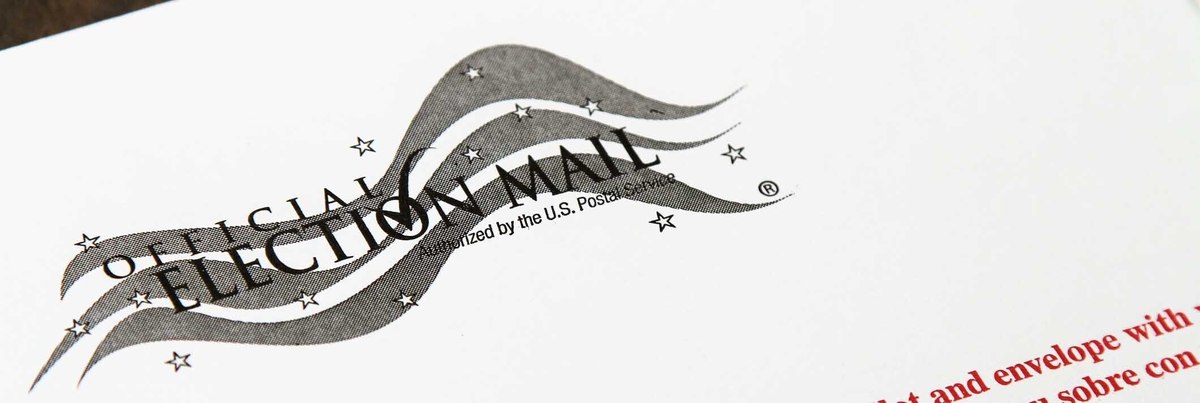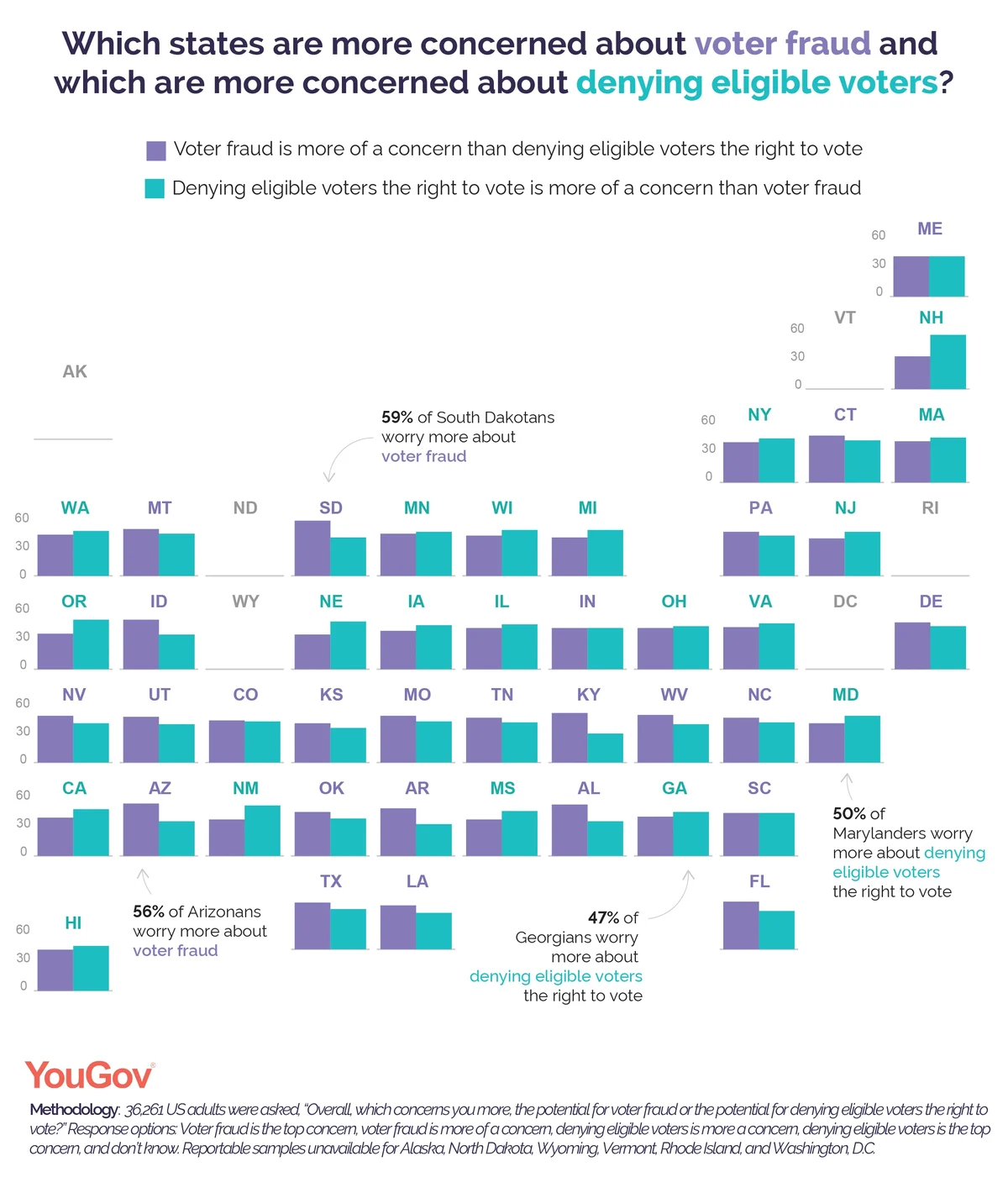America is torn between two visions of the biggest problem to its election system: the potential for voter fraud or the potential that eligible voters will not be able to cast their ballot.
President Donald Trump has claimed that mail-in voting will lead to massive amounts of voter fraud, even as election officials in Republican and Democrat-led states push to expand absentee ballot access for those with coronavirus health concerns during the 2020 election. The president’s distrust of expanded vote-by-mail initiatives follows several years of the Trump administration searching for evidence of widespread voter fraud in America without success.
The Washington Post found that among 14.6 million mail-in ballots cast in the 2016 and 2018 general elections, just 0.0025 percent (or 372 ballots) were identified for possible voter fraud. Despite evidence indicating that voter fraud is extremely rare, data indicates that the idea of voter fraud as a widespread problem has been disseminated nationally.
America is currently divided on whether the potential for voter fraud (46%) is more of a concern than the potential to deny eligible voters the right to vote (45%). A state-level analysis from YouGov finds that a plurality of Americans in at least 25 US states are more concerned about the potential for voter fraud than they are about potentially denying eligible voters the right to cast their ballot.
The states that are most concerned about voter fraud include South Dakota (59%), Arizona (56%), Alabama (55%), Idaho (53%), Kentucky (53%), Florida (51%), West Virginia (51%).
Kentucky is 22 points more likely to be worried about voter fraud (53%) than denying eligible voters (31%). The state has experienced high-profile voter fraud claims in recent years.
After losing re-election, former Kentucky Governor Matt Bevin claimed — without proof — that voter fraud cost him the election, including “thousands of absentee ballots that were illegally counted.” He also claimed that voters were “incorrectly turned away” from the ballot box.
The Louisville Courier-Journal reported that there was no truth to the assertions, and election officials in the state warned that Bevin’s words were “dangerous” and “absurd.” But, declarations of voter fraud from Republican leaders can carry weight. Four in five Americans who consider themselves very conservative (84%) are more worried about the potential for voter fraud.
Americans who consider themselves very liberal believe the opposite: that the potential for denying eligible voters should be the top concern. The states most concerned about denying eligible voters at the ballot box are New Hampshire (58%), New Mexico (54%), Oregon (53%), Nebraska (51%), California (50%), and Maryland (50%).
New Hampshire is 23 points more likely to be worried about denying eligible voters (58%) over voter fraud (35%), the most significant state-level margin. The state has grappled with this question in recent years. A widely debated New Hampshire bill proposed in 2017 was struck down in April for placing an unreasonable burden on voters. The law would have prevented part-time state residents — such as students — from voting in upcoming elections.
Republicans backed the law as a necessary measure to prevent voter fraud, but the judge who struck down the measure pointed out that on average, New Hampshire only experienced one confirmed case of voter fraud annually.
Tell your own story with data from YouGov. Contact uspress@yougov.com for more about our datasets.
Methodology: Total weighted sample size was 36,261 US Adults aged 18+. Participants were asked, “Overall, which concerns you more, the potential for voter fraud or the potential for denying eligible voters the right to vote?” Response options were: Voter fraud is the top concern, Voter fraud is more of a concern, denying eligible voters is more of a concern, denying eligible voters is the top concern. Responses were collected between July 2019 – July 2020. The responding sample is weighted to provide a representative sample of the United States.
Image: Getty












